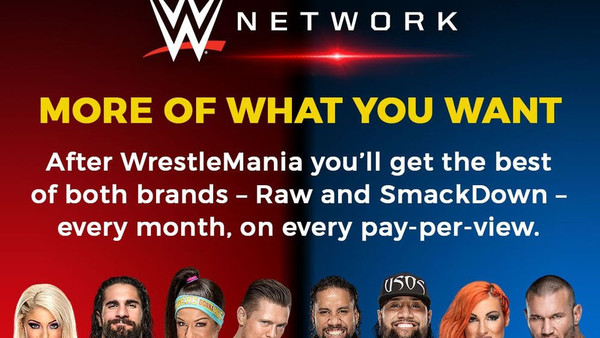WWE Confirm Every PPV To Be Dual-Branded
Raw and SmackDown will share Network offerings after WrestleMania.

WWE Network subscribers today received an e-mail from the company confirming rumours doing the rounds that PPVs are set to return to being co-branded affairs.
The missive contained a two-toned image featuring the words, "After WrestleMania you'll get the best of both brands - Raw and SmackDown - every month, on every pay-per-view," positioned above a slew of superstars. This means that the first Network event post-WrestleMania 34, May 6's Backlash, will present action from both the red and blue teams. It has originally been expected that the show would be Raw exclusive, after flying under the blue banner last May.
The e-mail - later published verbatim on the company's official website - also contained the ominuous headline, "MORE OF WHAT YOU WANT," lending credence to the frankly soul-destroying prospect of all future PPVs being expanded to four hours to accommodate the additional personnel.
WWE reintroduced the brand split back on 19 July 2016, with the first brand-specific PPV coming two months later with the SmackDown exclusive Backlash. Appropriately enough, that's the same event which will herald the end of the disunity. The feeling is that separate events have been struggling to draw in arenas, in addition to severely decelerating the television cycle, which has seen programmes dragged out for months between brand-specific shows. Bringing PPVs back in line with the 'Big Four' supershows ought to alleviate the latter issue - but whether fans have a monthly appetite for extended events is questionable. Still, they're not obliged to watch the whole thing. Paying to be there is enough.